
Abdullah Ibrahim is a South African pianist and composer. His music reflects many of the musical influences of his childhood in the multicultural port areas of Cape Town, ranging from traditional African songs to the gospel of the AME Church and Ragas, to more modern jazz and other Western styles. Ibrahim is considered the leading figure in the subgenre of Cape jazz. Within jazz, his music particularly reflects the influence of Thelonious Monk and Duke Ellington. He is known especially for "Mannenberg", a jazz piece that became a notable anti-apartheid anthem.
Christopher McGregor was a South African jazz pianist, bandleader and composer born in Somerset West, South Africa.
Johnny Mbizo Dyani was a South African jazz double bassist, vocalist and pianist, who, in addition to being a key member of The Blue Notes, played with such international musicians as Don Cherry, Steve Lacy, David Murray, Finnish guitar player Jukka Syrenius, Pierre Dørge, Peter Brötzmann, Mal Waldron, fellow South African Dollar Brand, and Leo Smith, among many other prominent players.
The Jazz Epistles were South Africa's first important bebop band. Inspired by Art Blakey's Jazz Messengers, its members included Dollar Brand on piano, Kippie Moeketsi on alto saxophone, Jonas Gwangwa on trombone, Hugh Masekela on trumpet, Johnny Gertze on bass, and Early Mabuza or Makaya Ntshoko on drums. The group became famous after performing in the jam sessions called Jazz at the Odin in the Odin Theater in Sophiatown.
South African jazz is the jazz of South Africa.

Carlos Ward is a funk and jazz alto saxophonist and flautist. He is best known as a member of the Funk and disco band BT Express as well as a jazz sideman.

Brian Abrahams is a South African jazz drummer and vocalist.

African River is a 1989 album by South African jazz pianist Abdullah Ibrahim..
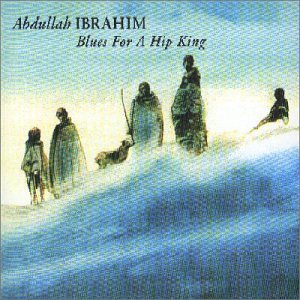
Blues for a Hip King is jazz album by South African artist Abdullah Ibrahim, released in 1989. The recordings are from several sessions in 1974, 1976 and 1979.

Blue Lake is a live album by jazz/world musician Don Cherry recorded in 1971 and first released on the BYG label in Japan in 1974. In 2003, Charly Records reissued the album along with Orient on the compilation Orient / Blue Lake.
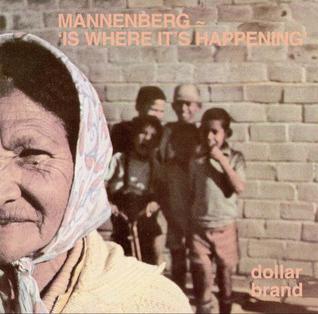
"Mannenberg" is a Cape jazz song by South African musician Abdullah Ibrahim, first recorded in 1974. Driven into exile by the apartheid government, Ibrahim had been living in Europe and the United States during the 1960s and '70s, making brief visits to South Africa to record music. After a successful 1974 collaboration with producer Rashid Vally and a band that included Basil Coetzee and Robbie Jansen, Ibrahim began to record another album with these three collaborators and a backing band assembled by Coetzee. The song was recorded during a session of improvisation, and includes a saxophone solo by Coetzee, which led to him receiving the sobriquet "Manenberg".
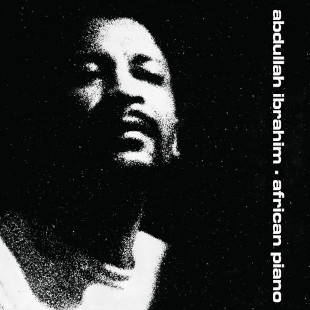
African Piano is a solo piano album by Abdullah Ibrahim, recorded in 1969. It was released on LP four years later and was first issued on CD in 1991.
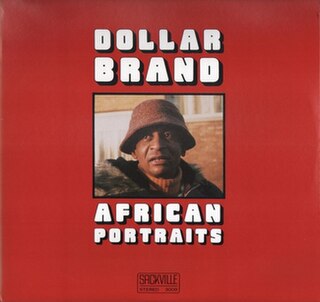
African Portraits is a solo piano album by Abdullah Ibrahim. It was recorded in 1973 and released by Sackville Records. Parts of the original release were later issued on compilation albums.
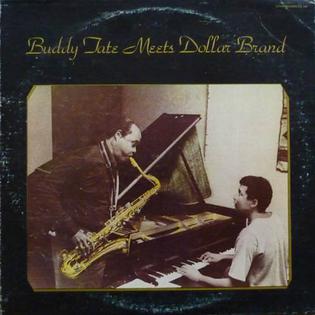
Buddy Tate Meets Dollar Brand, reissued as Buddy Tate Meets Abdullah Ibrahim: The Legendary Encounter, is an album by saxophonist Buddy Tate and pianist Dollar Brand which was recorded in New York City in 1977 and released on the Chiaroscuro label.
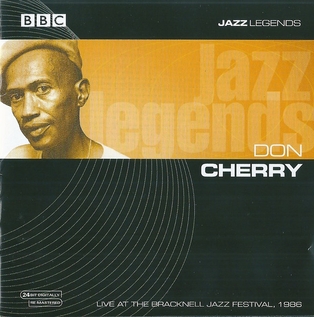
Live at the Bracknell Jazz Festival, 1986 is a live album by trumpeter Don Cherry. It was recorded in July 1986 at the Bracknell Jazz Festival in Bracknell, England, and was released on CD in 2002 by BBC Worldwide as part of their Jazz Legends series. On the album, Cherry is joined by members of the group called Nu: saxophonist and flutist Carlos Ward, percussionist Naná Vasconcelos, bassist Mark Helias, and drummer Ed Blackwell. Ward, Vasconcelos, and Blackwell would later appear together on Cherry's 1990 album Multikulti.

Witchdoctor's Son is an album by bassist and pianist Johnny Dyani. It was recorded on March 15, 1978, and was released on LP later that year by SteepleChase Records. On the album, Dyani is joined by saxophonists John Tchicai and Dudu Pukwana, guitarist Alfredo Do Nascimento, and percussionists Mohamed Al-Jabry and Luez "Chumi" Carlos De Sequarira. In 1987, the album was reissued on CD with four extra tracks.
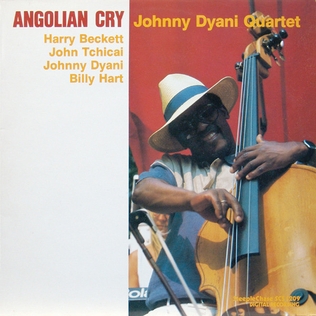
Angolian Cry is an album by bassist Johnny Dyani. It was recorded on July 23, 1985, and was issued on LP later that year by SteepleChase Records. On the album, his final release as a leader, Dyani is joined by saxophonist and bass clarinetist John Tchicai, trumpeter Harry Beckett, and drummer Billy Hart. In 1986, the album was reissued on CD with an extra track.

Song for Biko is an album by the Johnny Dyani Quartet, led by bassist Dyani, and featuring saxophonist Dudu Pukwana, cornetist Don Cherry, and drummer Makaya Ntshoko. It was recorded on July 18, 1978, and was released on vinyl in 1979 by SteepleChase Records. In 1994, the album was reissued on CD with an extra track. The dedication in the album title refers to anti-apartheid activist Steve Biko, who was killed by South African security officers in 1977.

Echoes from Africa is an album of duets by pianist Abdullah Ibrahim and double bassist Johnny Dyani. It was recorded on September 7, 1979, at Tonstudio Bauer in Ludwigsburg, Germany, and was released later that year by Enja Records. The album features a traditional piece, a composition by Mackay Davashe, and two pieces by Ibrahim, one of which is dedicated to fellow pianist McCoy Tyner.

Good News from Africa is an album of duets by pianist Abdullah Ibrahim, then known as Dollar Brand, and double bassist Johnny Dyani. It was recorded on December 10, 1973, at Tonstudio Bauer in Ludwigsburg, Germany, and was released in 1974 by the Swiss Cameo label and the German Enja label. The album features a blend of traditional African pieces and originals by Ibrahim.
















